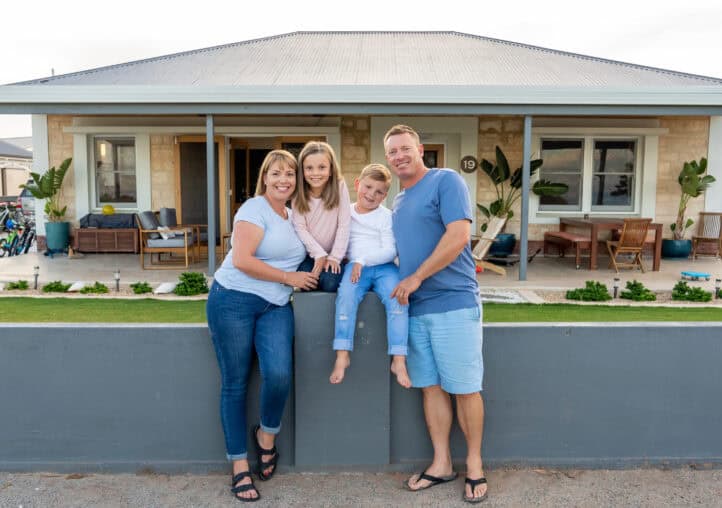Everything you need to know about finding a mortgage broker
Using a mortgage broker to assist borrowers in finding the right lending product is a popular strategy when buying property. Here, we look at what a borrower might need to consider when choosing the right mortgage broker for them.
Introduction
Finding the right home loan for you sounds simple right? Until you’ve opened up the laptop and realised that you aren’t starved for choice. These days, the amount of options and information available for lenders is a bit overwhelming. So where do you start? How do you narrow down your choices to the home loan that suits your personalised needs?
As mortgages have become more competitive (ie there are more loan types available from more lenders), the role of the mortgage broker has become more popular. Unless you have weeks of spare time and a solid spreadsheet to keep track of hundreds of lenders along with their fees and conditions – not to mention do they match your situation – log off, shut that laptop up and set up some time with a broker.
What is a mortgage broker and who can they help?
A home loan broker is the go-between financial professional who specialises in helping their clients – that’s you, the borrower – find a loan. The broker acts on your behalf to liaise with other lenders to arrange a home loan for you.
They are particularly helpful for those who have unique financial situations such as small business owners, self-employed people and those with circumstances that are a little unique. Your broker will investigate on your behalf and find lenders who align with your situation.
On borrowers with unique circumstances for a sec. How Aussies earn their money is changing – we know that the gig economy is booming and self-employment or multiple streams of income are on the rise. Still, there are plenty of traditional lenders who still need documentation and records that these kinds of borrowers might not be able to provide. For these kinds of borrowers, a broker is even more useful, as they’ll have access to banks, non-banks and private lenders that might cater to your needs.
Or, you might have unique goals other than buying a property to live in. For example, you might want to buy an investment property, use your home equity for renovations, get cash out of your mortgage or set up a self-managed super fund. A broker can chat to lenders about your situation and come back and present suitable options to you. They’ll do the research and most of the communication with each lender.
A snapshot of the process of working with a broker
It’s important to note that mortgage brokers work for you, not the lender. Here’s roughly what the proces of working with a home loan broker will look like.
- A good broker works with you to understand your needs, goals and full financial picture
- They’ll work out roughly what you might be able to afford to borrow (subject to unique lender criteria, of course) and find options to suit your situation.
- Unsure how each loan works? What about all of the jargon associated with a mortgage application? A good broker will break it all down for you and explain the features, jargon, the interest rate and fees over the life of a loan.
- A good broker will have you get your paperwork ready right at the start, so they can hand everything over to the lenders for speedy approval (fingers crossed!) and timely settlement.
- When you meet with your home loan broker, bring your lists of needs and wants to the conversation. Feel free to present certain home loans to them if you’ve done some preliminary research, too.
- They’ll go away, review your information and reach out to the lenders they’re connected with. Then they’ll present you with a few options and take the time to explain to you how each option works and why it might be the best option versus lenders that they haven’t included.
- Finally, brokers apply for the loan on your behalf and manage the process through to settlement.
The benefits of using a mortgage broker
So now you know a little more about what a mortgage broker does. We’ve touched on some of these above, but what exactly are the benefits of working with a broker as opposed to contacting lenders directly?
- Brokers have access to many lenders across the bank, non-bank and private lender category. Therefore, they will knowing which lenders are likely to align with your needs and circumstances.
-
- Brokers cut through complexity and keep it simple. They are able to assist a borrower through the process of finding the right loan and provide the guidance you wouldn’t necessarily have if you looked on your own.
- Brokers save you time. Lending and working with the bank is their expertise, not yours. They’ll save you precious time for you to concentrate on working to earn money to put towards that mortgage, or.. for enjoying your life!
- Brokers can get things done quickly and will help you get to approval and settlement quickly. Brokers have a much better idea of what documentation and level of records each borrower will require. So, they’ll let you know what to provide upfront to limit back and forth between you and your lender, getting you faster approvals and so you can make settlement on time. They’re on your team – and they want you to secure the property you want.
-
- Brokers are independent. They are not affiliated with the lender. This is useful because you can get independent, unbiased advice. They will usually present you with 3-5 suitable lenders for you to choose from or lean more about.
- Ongoing assistance through the life of your loan. Your broker’s work isn’t over when your loan settles. Usually, your broker will check in with you once or twice a year to make sure you’re servicing your loan happily and ask if you have any further requirements. They might even contact your lender to make sure you’re still on the loan that’s right for you and your circumstances – including rates and loan terms. Into your future, they might assist with refinances or investment properties.
How brokers get paid
You might be thinking, ‘sounds great’, but what’s the catch? How much does the service of a broker cost? Good news: working with a mortgage broker costs you, the borrower, nothing.
Instead, mortgage brokers in Australia are paid for bringing your business to the banks and lenders they have a relationship with. Because of this structure, ASIC (Australian Securities and Investments Commission) regulates the industry with a Best Interest Duty, which means they must act in the best interest of the borrower in each individual situation, rather than suggest certain lenders based on potential income for the broker. Think of this as similar to the duty of directors in a company to act in the best interests of the shareholders.
When your mortgage broker does secure your home loan with the lender that’s most suited to your situation, they will likely get paid in the following ways:
- Upfront commissions: These commissions are paid to brokers by a lender on signing you up for a mortgage. The amount of upfont commission varies from lender to lender.
- Trail commissions: These are smaller than upfront commissions. They’re paid by lenders to your mortgage broker for each year that you and are paid out by lenders to mortgage brokers for each year that you remain on the loan.
At no point should you need to pay your broker for their service.
What to look out for when choosing a broker
So, how do you know which broker to go with? You could find your mortgage broker through a a google or social search, you might ask for a personal recommendation, you could reach out to a professional association or you might be connected with one by a lender.
As you’re working together, not only will you want to roughly follow the process we’ve listed above, but you also want to feel 100% confident in your broker’s ability and their commitment to finding you the right loan solution. Here are some things we recommend you consider in your work together:
-
- Does the broker understand your needs and goals? You’ve taken the time to get clear on your must-haves and nice-to-haves, where you see yourself in the future and what you can realistically afford. After sharing this information with the broker, ensure that they are acting with your best interests in mind and have a solid understanding of what you are looking for.
- What is the broker’s work experience? How long have they been working with residential home loan lenders and are they up to date with the latest compliance and legislation? Take some time to read through reviews or ask questions about their experience.
- Check out their reviews and recommendations Choosing a broker is a big decision – you’ll potentially work with them for a very long time. Check out their reviews and recommendations, and ask if they’re happy to provide any if you can’t find them easily online.
- Has the broker worked with customers like you? Let’s say you are a sole-trader who works as a freelancer. You wouldn’t have the usual documentation required by the banks. If you’re self-employed you would have alternative documentation (alt-doc). Has the mortgage broker worked with self-employed individuals before? Will they know how to obtain a successful outcome from your unique situation?
When you should reach out to a broker, and key things they might like to know
Once you have some savings underway and a timeline or goal in mind – reach out to a broker. It’s really never too early. The more information you have, and the more information your broker has, the more likely you are to find the right solution for you.
When you do reach out to your home loan broker, try and have the following things in mind.
- Know your budget. This is one of the first questions you are going to be asked. It’s helpful to already have a clear understanding of what you can afford to pay on your home loan. Spend some time going through your finances so that you are prepared when meeting with the broker. This ensures that the process can move along smoothly without delay or you can clear up any uncertainties you may have.
- Beyond interest rates, what’s important to you? There are many different types of loans with different features. Of course interest rates are a major consideration, but what else matters to you? For example, are you looking for flexible repayments or the ability to pay more on the loan without penalty so that you can build home equity? Is this an investment property and would you like to free up cash flow for other investments or property improvements? Are you looking for certain loan facilities like an offset account?
- How quickly do you need the loan? Is there some time to investigate options or is there a hot deadline on this process? Knowing this is important to make sure it aligns with the broker’s availability.
Now you have everything you need to know about using a broker to find the right home loan for you. Share this guide with a friend who is beginning their journey or save it as a helpful reminder for yourself.
About Bluestone Home Loans
What about us? We work with brokers to give you the home loan that’s best for you. We currently work with brokers works to make sure borrowers get the loan that’s best for them.
 Nicole Avery
Nicole Avery

